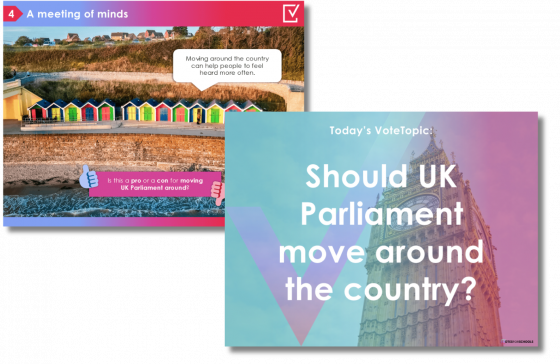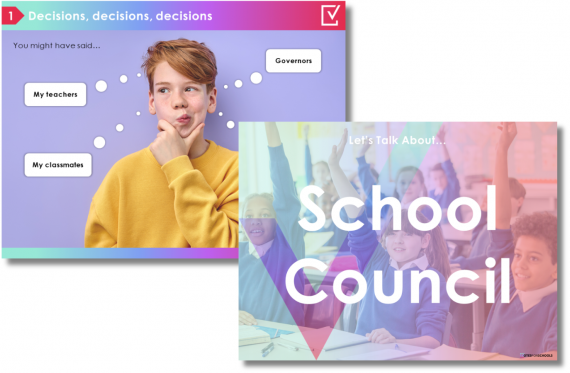Citizenship education is still part of the National Curriculum in secondary schools — it’s a statutory requirement. In primary schools, it’s not compulsory, but themes are covered through PSHE and other subjects. The goal remains to help pupils understand democracy, government, the rule of law, and active citizenship.
Making citizenship feel relevant means more than teaching basic democracy or parliamentary structure. It’s about giving students the confidence to challenge ideas and think critically about their role in society.
Why Citizenship Education Deserves More Attention
Citizenship education can feel vague at times, but it’s about active participation. It helps students realise they can influence change within their school, community, or beyond. Social justice movements and political debates online make this education more relevant than ever.
Giving students space to discuss real-world issues and form opinions builds confidence and critical thinking skills, rather than just ticking curriculum boxes.
What Citizenship Looks Like in 2025
Citizenship education works best when it’s woven into existing lessons, rather than being treated as a standalone subject. Whether it’s PSHE, History, English, or even Science, there are loads of opportunities to make it relevant and meaningful. The key is to integrate it naturally into topics that are already being taught and to make it feel purposeful rather than forced.
Here’s a breakdown of the key elements that make up modern citizenship education:
1. Political Literacy
Understanding how political systems work might sound dry on the surface, but it’s essential if we want students to feel empowered to participate in democracy. The trick is to make it tangible and relatable.
-
Focus on Real-Life Examples: Instead of talking about abstract concepts, look at real-world scenarios — like how local councils make decisions that impact young people, or how national policies affect their community.
-
Link to Student Campaigns: Explore how young people have successfully campaigned for change, whether it’s about environmental issues, safer streets, or school policies. This makes politics feel practical rather than distant.
-
Debate and Discussion: Use current news stories to spark debates and encourage students to voice their own opinions. Help them see that politics isn’t just for politicians — it’s something they can actively shape.

For example, you might start a lesson by discussing a recent council decision that affects local services, then challenge students to consider how they would respond or campaign differently. By connecting the theory to real action, political literacy feels far more relevant.
2. Digital Citizenship
It’s no secret that most students live a huge part of their lives online, so teaching them how to navigate digital spaces responsibly is a must. Digital citizenship isn’t just about online safety — it’s about understanding how to interact responsibly, critically assess information, and recognise misinformation.
-
Fake News & Media Literacy: Show students how to fact-check information and identify fake news. Use real-life examples of viral misinformation and discuss why people believe it.
-
Respectful Online Engagement: Teach students about the impact of online behaviour — from cyberbullying to positive digital activism. Discuss how to handle disagreements constructively.
-
Digital Rights and Responsibilities: Explore topics like data privacy and the ethics of sharing content. Encourage students to think about their digital footprint and how it might affect them in the future.
Try setting up a classroom “newsroom” where students critically analyse trending news stories, debate their credibility, and decide how they would respond to misinformation. This hands-on approach makes the abstract feel concrete.
3. Social Justice & Equality
Young people today are often passionate about social justice — from standing up against discrimination to advocating for equal rights. Citizenship education can channel that energy into thoughtful, informed discussions.
-
Understanding Privilege and Inequality: Create opportunities to discuss what privilege means and how it shapes people’s experiences. Use case studies to help students see different perspectives.
-
Advocacy and Activism: Talk about how advocacy can bring about change, from small local actions to national campaigns. Show students examples of youth activism that made a difference.
-
Challenging Discrimination: Encourage students to explore how discrimination appears in different contexts, whether that’s in schools, workplaces, or wider society, and discuss how to challenge it.
Role-playing activities can work well here, giving students the chance to put themselves in someone else’s shoes. Whether it’s debating a contentious issue or practising how to respond to discriminatory comments, the aim is to build both empathy and confidence.
4. Environmental Responsibility
Students are increasingly vocal about climate change and environmental issues. It’s vital to tap into that enthusiasm and help them think critically about sustainability and their own impact.
-
Local Environmental Projects: Encourage students to get involved with community clean-ups, tree planting, or energy-saving initiatives.
-
Understanding Climate Policy: Break down how national and international policies affect everyday life. What can be done at a local level to make a difference?
-
Critical Thinking on Sustainability: Explore the impact of consumer choices and lifestyle changes. Discuss how small actions can add up to significant change.
Hands-on projects like creating a school garden or setting up recycling initiatives give students a sense of ownership and practical experience in making a difference.
How to Make It Stick
One of the biggest challenges with citizenship education is making it feel real rather than just a theoretical exercise. It’s about creating opportunities for students to experience active citizenship — whether that’s through debate clubs, school councils, community projects, or just regular class discussions on current events. If they learn to question, evaluate, and articulate their views, they’re far more likely to become the kind of citizens who don’t just know their rights but feel empowered to use them. Encouraging critical thinking skills means helping students question, evaluate, and form their own opinions, preparing them to be active citizens.
At VotesforSchools, we’re passionate about giving young people the chance to explore these big questions and develop their own opinions. By making space for debate and discussion on real-world issues, we help students build the confidence to think independently and engage meaningfully with the world around them.



